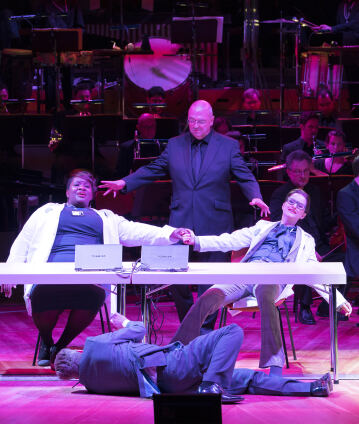Interview
Sir Simon Rattle and Peter Sellars on Ligeti’s “Le Grand Macabre” « Le Grand Macabre » de Ligeti avec Simon Rattle et Peter Sellars

György Ligeti ne manquait certes pas d’humour. La meilleure preuve en est son délirant opéra Le Grand Macabre, que Sir Simon Rattle présente en 2017 avec un illustre ensemble d’artistes lyriques. Parabole grotesque sur la guerre, l’œuvre emprunte au théâtre de l’absurde, à la danse macabre médiévale et au tumulte bigarré de la fête foraine. Comme dans les précédents projets musico-dramatiques des Berliner Philharmoniker, Peter Sellars a bien voulu se charger de la mise en scène.
Berliner Philharmoniker
Sir Simon Rattle
© 2017 Berlin Phil Media GmbH
Interviews liées au concert
Catégorie
Artistes
Nos suggestions
- A magical Ravel concert with Simon Rattle
- Simon Rattle dirige « Tosca »
- Simon Rattle dirige la « La Walkyrie » de Wagner
- « Pelléas et Mélisande » avec Simon Rattle, Christian Gerhaher et Magdalena Kožená
- Simon Rattle conducts excerpts from Wagner’s “Götterdämmerung”
- « La Damnation de Faust » avec Simon Rattle, Joyce DiDonato et Charles Castronovo